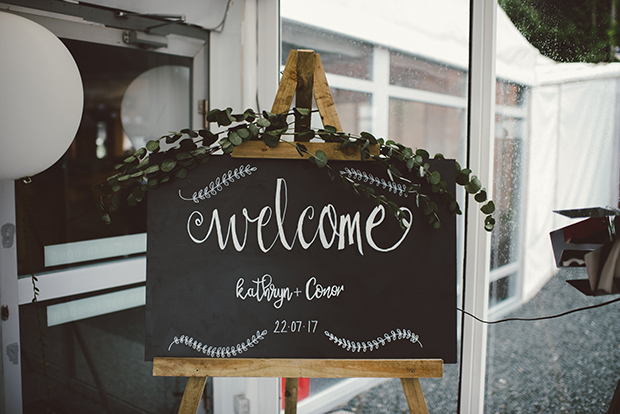A couple of weeks ago, we shared Rosie Farrell's beautiful wedding at Markree Castle. Rosie has MS and lives with chronic pain, so she and her husband Niall planned their day around making it as fun, comfortable and pain-free as possible for Rosie. Today, as part of our Accessible Wedding series, Rosie is here to share her advice for how to make your wedding disability-friendly. Over to you, Rosie!
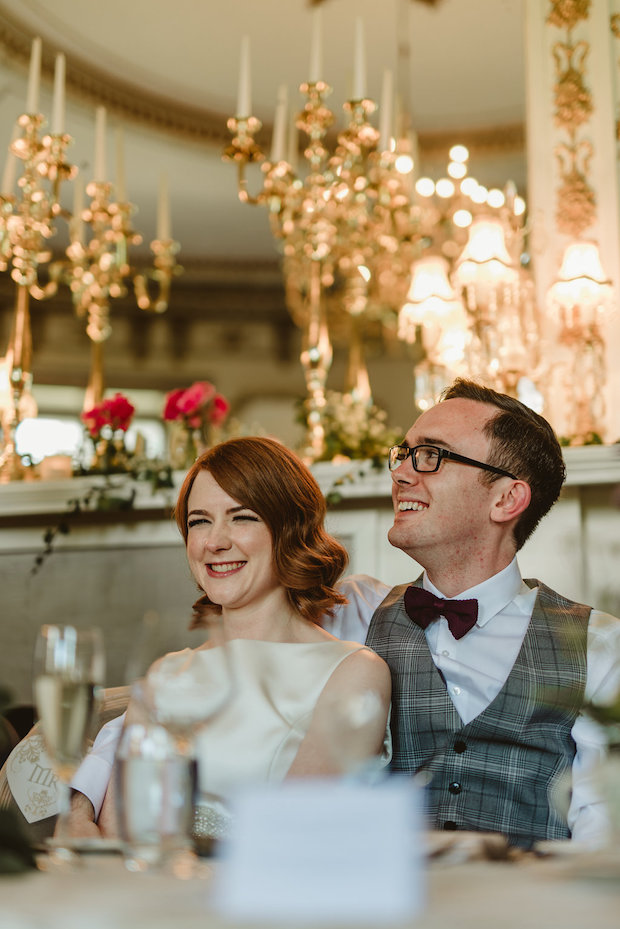
Most brides and grooms will find themselves turning into checklist ninjas as they plan their wedding. It is, after all, one of the most important days of your life, and a day you hope your guests will enjoy too. So wouldn’t you hate that, despite your meticulous planning, you’d forgotten to make the day accessible for everyone?
For many people with a disability, weddings are something they have come to dread. But all it takes are a few extra lines on your checklist to ensure your wedding is inclusive and enjoyable for everyone.
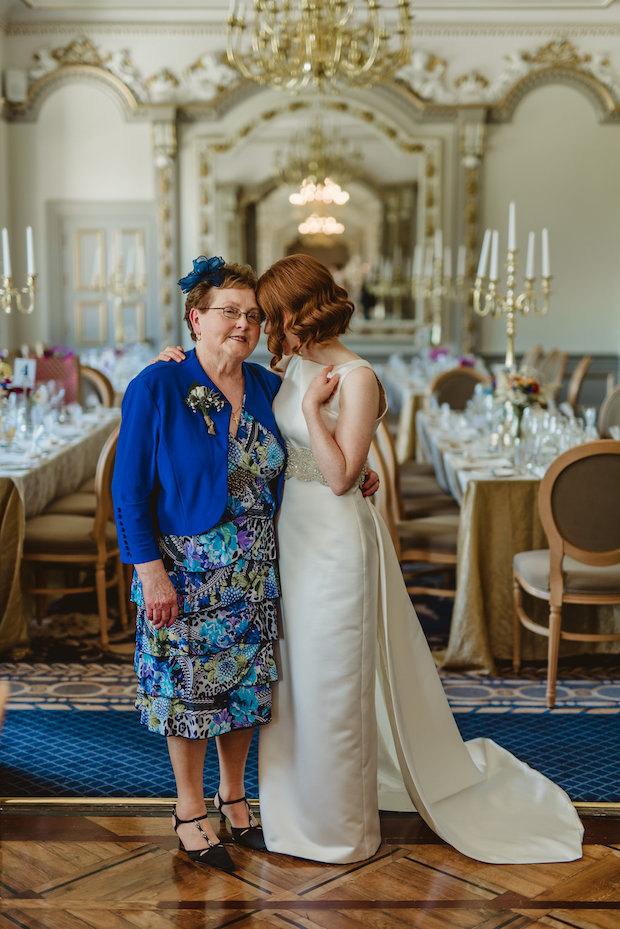
If in Doubt, Just Ask
The first thing to keep in mind is that no two disabilities look the same, some are invisible and some not so. From your cousin Frank who uses a wheelchair and your nephew who has autism to your best friend who has MS and another with epilepsy and fibromyalgia, the list is endless.
To avoid a lot of guesswork and googling, it might be an idea to add a line about special accommodations on the RSVP. “Our wedding is a day for everyone to enjoy so please let us know if you have any dietary restrictions or require special accommodations.” This way you’re letting everyone know they’re welcome and that you’ll do your very best to meet their needs.
Accessibility is often the biggest barrier to inclusion for people with a disability but by making a venue wheelchair accessible, you cater for others with restricted mobility too. Louise Bruton has loads of tips here on making your big day wheelchair accessible.

Getting There
If you’re providing wedding day transport for guests then you need to consider the accessibility of it. Can your cousin transfer from the wheelchair to the car or could you rent an accessible car? Steps also pose a problem for many people, from those with reduced mobility to the elderly and anyone who’s found themselves with a broken limb, so this is something to weigh up if you’re renting a bus for guests. After all, you don’t want to find out that one of your partner’s cousins missed out because of the inaccessible transport.
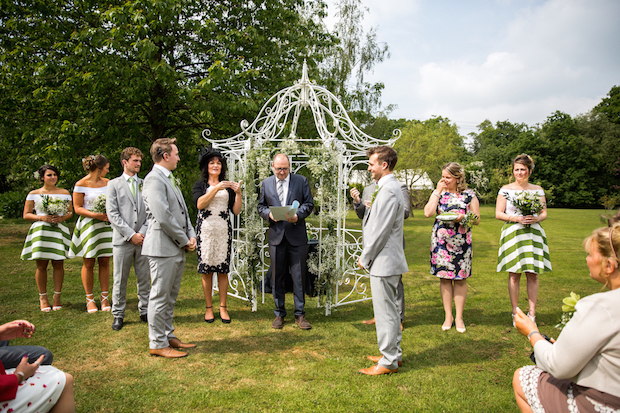
The Ceremony and Speeches
Consider the needs of some of your guests and think about reserving seats for them. Create space for someone with a wheelchair to comfortable navigate and park their chair and provide extra space for someone with reduced mobility as manoeuvring in and out of a seat is much more difficult if you use mobility aids like a walking stick.
If any guests have a hearing or vision impairment, consider sitting them closer to the action - that includes at the ceremony and during the speeches. Many people who are hard of hearing can lip read, so this means they get to be a part of your special day. If it’s important to you and them, you may want to have a sign language interpreter. (We'll be covering more on wedding planning with and for hearing impairments in a couple of weeks!)
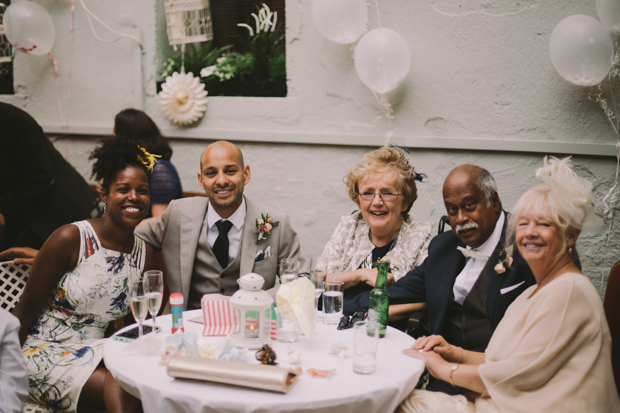
The Drinks Reception
The prosecco and canapés are often handed out to people as they stand around, sometimes outdoors, but think about having extra chairs and tables as it’s not always possible for someone with limb loss or a walking stick to stand around eating and drinking this way. You could prearrange for waiting staff to check if anyone needs assistance during this part of the day.
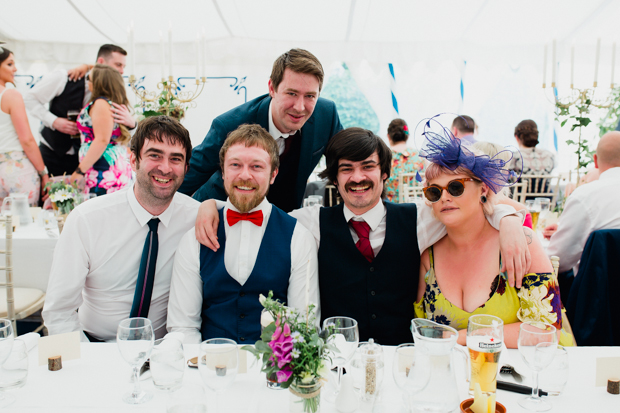
Dining
At this point, most guests will have flagged special dietary requirements, but don’t fret if cousin Mary forgot to mention that she’s coeliac because the hotel will generally be prepared for a few extras. Make sure there’s plenty of space between tables for accessibility and think about placing people with conditions like Crohn's and colitis closer to the bathrooms so they don’t have to endure a trek every time they need to go.
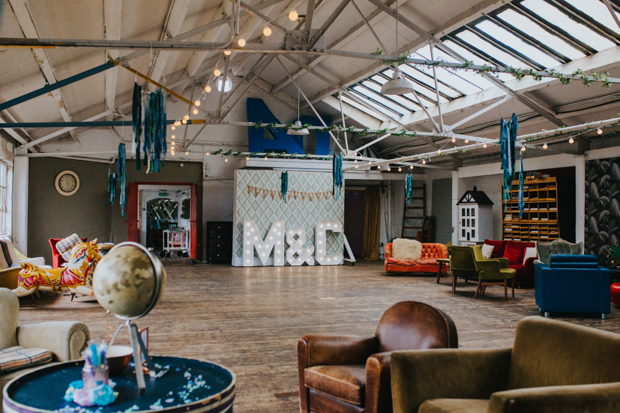
Getting Your Dance On
When the lights go down and you’re ready to throw some moves, consider a designated chair dancing area (the seated not the standing-on-chairs kind) for people who are unable to or who can’t dance for long. It’ll mean they can feel a part of the fun rather than staring over from the tables. It’ll be a much-appreciated gesture that’s sure to end up a hit with everyone - eh, hello sore feet!
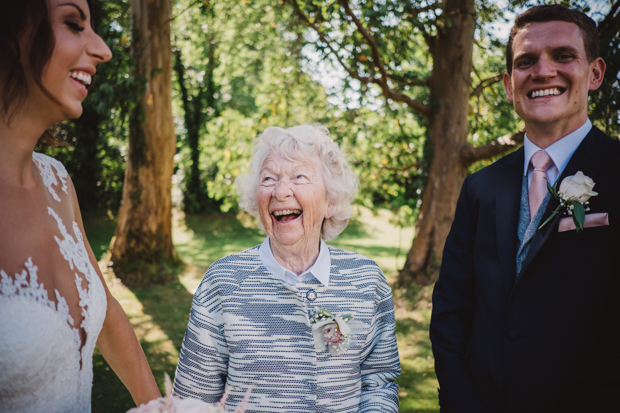
More Tips for Making Your Wedding Accessible to All:
- Sensory overload is a big problem for some people, particularly those with autism, so see if your venue can allocate a quiet room where they can retreat to if needed.
- If you’re allocating bedrooms, make sure guests in a wheelchair are catered for and that those with mobility and fatigue problems have a bedroom that’s only a short walk away. This also apply to guests with conditions such as epilepsy where they may need to lie down quickly.
- If you know that a guest is vision impaired, consider sending their invite in bigger writing or create a quick and easy audio/video invite for them. The gesture will mean a lot.
- How about including stick-on heat patches in those handy bathroom packs? People with chronic pain will thank you but so will your uncle Mike who busted too daring a move on the dancefloor.
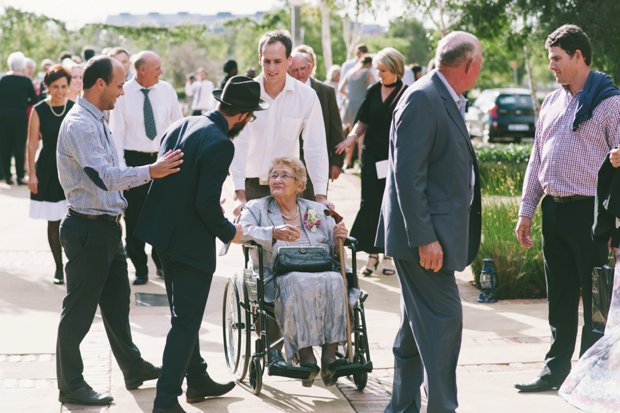
At the end of the day, the key is to check with your guests what accommodations they need. It’s only a little bit of extra planning on your end but it’ll make the world of difference to them and you'll be happy and relaxed knowing that all your guests are too.
Thanks so much to Rosie for these amazing tips on hosting a disability-friendly wedding. Read more of Rosie's advice at sherunswithms.wordpress.com and her Facebook group, Weddings with a Difference. You can also see Rosie & Niall's stunning wedding here.
Read more from our Accessible Weddings Series
Feature image: Paula Gillespie via One Fab Day

